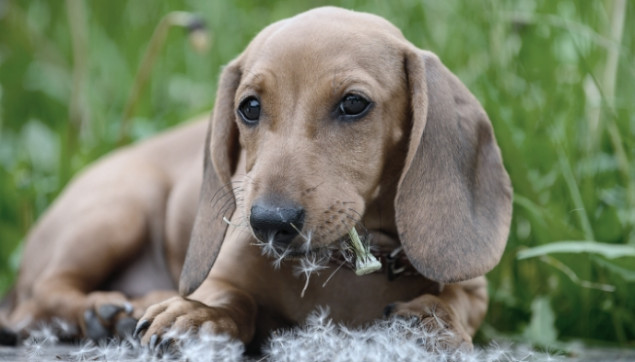Which house plants are a threat to your furry friend?

Last updated on 5th January, 2024 at 12:38 pm
Your green fingers might cause your beloved pet to go green instead…
Reading time: 3 minutes
In this article you’ll learn:
- Which plants are toxic for your furry friends.
- Which plants can support your pet’s health.
- What to do if your dog or cat eats a toxic plant.
A South African garden in bloom is a sight to behold – until four-legged Benji decides to chomp down on a delicious-looking leaf. While many plants don’t have any adverse effects on pets, there are a number of garden staples you should keep far away from your furry loved ones.
5 Toxic plants to keep away from your pets:
#1: Delicious monster (Monstera deliciosa) and elephant ear (Colocasia esculenta)
These two can cause irritation and pain if Roxie the Jack Russell chews on a leaf. “This type of poisoning is often seen in puppies who chew at everything they can get to out of curiosity. Treatment is mainly targeted at managing the symptoms, and often carries a good prognosis,” notes Dr Bodo Schroeder, a veterinarian at Wilgers Animal Hospital.
#2: Cycads
While this ancient endangered plant deserves care, it also hides a secret – its seeds can be fatal to animals if ingested. All parts of the plant are poisonous to animals, but eating the seeds, which have the most toxins, could lead to liver failure, and even death.
#3: Chincherinchee (Ornithogalum thyrsoides)
Lovely to look at, a disaster to eat – especially the bulb, which is highly toxic. Don’t let your pet drink the plant’s sap either, which could lead to awful conditions such as diarrhoea, vomiting and nausea.
#4: Lilies (Lilium or Hemerocallis)
True lilies are dangerous, especially for cats – even just ingesting a bit of pollen while cleaning themselves could lead to kidney failure.
#5: Cannabis plants
Marijuana is harmful for pets to ingest (either the plant or the remnants of a recreational activity) and could lead to vomiting, incoordination and tremors. “Always tell your vet if your pet was exposed,” says Dr Tessa Brouwer from Family Vet Clinic Centurion.
Plants that can be beneficial for pets
#1: Mint
One or two leaves a day will not only help with Noodles’ breath, it’s also a source of vitamins and fibre. (Stay away from pennyroyal [Mentha pulegium], which is toxic to humans and animals).
#2: Rosemary
A few sprinkles of dried rosemary or a few chewed leaves could help with Pancake’s digestion, as well as fighting bacteria.
When to get help immediately
If your pet has eaten something toxic, they will most likely start showing symptoms quite rapidly. Get them to a vet as soon as possible, with any information you can gather about what they may have ingested. Pay attention to the following sudden symptoms:
- Vomiting
- Diarrhoea
- Seizures
- Foaming at the mouth
- Excessive salivating/drooling
- Excessive thirst
- Weakness
- Abnormal bleeding
“If your pets are accidentally poisoned, don’t rely on home remedies to treat your pet. Rather get them to the vet as soon as possible,” concludes Dr Schroeder.
Want to learn more?
We send out regular emails packed with useful advice, ideas and tips on everything from saving and investing to budgeting and tax. If you're a Sanlam Reality member and not receiving these emails, update your contact details now.
Update Now







